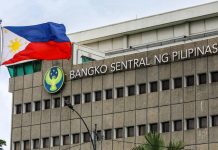
THE SENATE started its plenary deliberations on the P3.7-trillion proposed national budget for 2019.
In her sponsorship speech, Sen. Loren Legarda, finance committee chairwoman, admitted that the Senate is pressed for time to approve the budget.
However, Legarda expressed confidence that the senators will “perform our duty to pass a budget that is geared towards our collective desire to provide our people with programs and services that would usher in personal growth, community development, and national progress.”
The House of Representatives transmitted to the Senate the proposed 2019 budget only last week. Congress will adjourn its session on December 14 and will return in January next year.
Senate President Vicente Sotto III expressed doubt the proposed budget will be approved this year.
“I doubt (we can approve the budget before the break). Depende. Best effort on the 12th (if we can approve it on third reading) but there is bicameral conference committee meeting pa kaya it looks like January na,” Sotto said in a text message to GMA News Online.
In the past years, the budget was transmitted to the Senate end of October, allowing the chamber more than a month to deliberate and scrutinize it.
In her sponsorship speech, Legarda said: “Today, I am pleased to report, Mr. President, that our constitutionally-mandated task to “propose or concur with amendments” to the national budget for fiscal year 2019 is almost complete and is now ready for plenary discussion, after holding 52 budget hearings, several briefings, and a comprehensive discussion with the agencies constituting the Development Budget Coordinating Committee (DBCC) to thresh out the finer details of the 2019 national budget.”
She said next year’s budget is P10-billion lower than the 2018 national budget since it limits new appropriations to include only those programs that are ready for implementation and completion within the budget year.
The Department of Budget and Management presented a cash-based budget system which means agencies do not only obligate or award contracts for programs, activities and projects, but also ensure actual and full delivery of goods and services within the fiscal year.
Legarda said the highest allocation by sector, based on the National Expenditure Program, is still for social services at 36.7 percent of the budget, followed by economic services at 28.4 percent, general public service at 18.9 percent, debt burden at 11 percent, and defense at 5 percent.
She said investing in the human capital remains the primary goal of the government as support is provided for education, particularly Commission on Higher Education’s Universal Access to Quality Tertiary Education at P43.3 billion, and the Department of Education’s Basic Educational Facilities Program at P 30.7 billion, and Government Assistance to Students in Private Schools and Non-DepEd Public Schools at P32.1 billion.
She said state colleges and universities (SUCs) will likewise be given support in terms of capital outlays for SUCs with zero allocation under the GAB for the upgrade and improvement of their facilities.
A total of P2.925 billion has been provided for the implementation of the revised Compensation and Position Classification Plan for Faculty Position in state colleges and universities and higher education institutions as implemented in National Budget Circular No. 461.
Legarda said to continue servicing the health care needs of Filipinos, P67.353 billion is allocated for the National Health Insurance Program while P2 billion has been allocated for the Health Facilities Enhancement Fund, which will be distributed across the country for the purchase of hospital equipment of rural health units, barangay health stations, local government-run hospitals and other hospitals under the Department of Health.
She said another big-ticket program under social services is the DSWD’s Pantawid Pamilyang Pilipino Program at P88.106 billion while P909.7 billion is allocated for the ‘Build Build Build’ program, including funding for the 35-km Metro Manila Subway Project Phase 1 which will be the first subway in the country, and the Mindanao Railway Project.
She said the Senate caused the realignment of P20 billion within the unprogrammed fund to provide for standby appropriations for the rice and coconut farmers. The P10 billion for the Rice Competitiveness Enhancement Fund is intended to fund farm machineries and equipment, the Rice Seed Development, propagation and promotion, credit assistance and rice extension services to farmers who will be affected by the tariffication of the quantitative import of rice.
The other P10 billion is for the Coconut Farmers and Industry Development Fund which shall be used for infrastructure program, planting, replanting and establishment of hybrid coconut nurseries, intercropping and shared facilities, research and development and credit facilitation, she added.
The senator said P172.4 billion and P177.7 billion were allotted to the Philippine National Police and the Armed Forces of the Philippines, respectively to provide a secure, orderly, and safe environment conducive to social and economic development. (With GMA News/PN)







